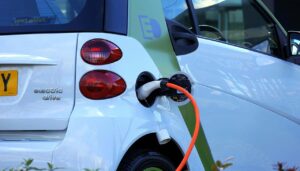
As we stare into the evolving landscape of the 21st century, nothing encapsulates the vision of a sustainable future quite like electric vehicles (EVs). These technological marvels, once seen as novelties, have rapidly become mainstays on our roads. Now more than ever, they represent an immediate and impactful solution to combating climate change, reducing our carbon footprint, and transitioning to a greener, cleaner mode of transport. Let’s explore the numerous benefits of embracing electric vehicles.
Environmental Benefits
Reduction in Greenhouse Gas Emissions
One of the most significant environmental benefits of electric vehicles is the substantial reduction in greenhouse gas emissions. Traditional gasoline-powered vehicles emit substantial amounts of carbon dioxide, a major contributor to global warming. In contrast, electric vehicles produce zero tailpipe emissions, leading to a substantial decrease in the overall greenhouse gas emissions.
Improved Air Quality
Electric vehicles also contribute to improved air quality. With no exhaust emissions, EVs help reduce harmful air pollutants that can cause numerous health issues, including respiratory problems and heart disease. Cities with a higher adoption rate of electric vehicles are likely to experience a notable improvement in urban air quality.
Decreased Dependence on Fossil Fuels
By shifting to electric vehicles, we can significantly decrease our dependence on fossil fuels. Traditional vehicles run on gasoline or diesel, both derived from crude oil. Electric vehicles, however, can be powered by a variety of sources, including wind and solar power, which are renewable and far less damaging to our environment. This shift not only helps conserve dwindling fossil fuel reserves but also paves the way for a sustainable and secure energy future.
Economic Benefits
Lower Operating Costs
One of the key economic benefits of electric vehicles is their lower operating costs. The cost of electricity needed to power an EV is considerably less than the cost of gasoline on a per-mile basis. Plus, EVs are cheaper to maintain as they have fewer moving parts and do not require oil changes, making the total cost of ownership less than traditional cars over time.
Government Incentives and Tax Credits
To encourage the transition towards sustainable transport, governments worldwide offer various incentives and tax credits for electric vehicle owners. These incentives can significantly reduce the upfront costs of acquiring an electric vehicle, making them an economically attractive option. From federal tax credits to state and local incentives such as rebates, exemptions from emissions testing, and free parking, the range of incentives available can make owning an EV much more affordable.
Job Creation in the EV Industry
The rise of electric vehicles is also driving job creation in the EV industry. From manufacturing and maintenance to infrastructure and support services, the EV industry has become a significant source of employment. This growth in the industry not only contributes to economic stability but also paves the way for a greener future.
Technological Advancements
Longer Driving Range and Improved Battery Technology
In the early days of electric vehicles, one of the main criticisms was their limited driving range due to battery limitations. However, continuous advancements in battery technology have significantly increased the driving range of electric vehicles. Modern EVs can now cover hundreds of miles on a single charge, and improvements in battery lifespan have eased concerns over the need for frequent replacements. The future holds even more promise, with ongoing research and development seeking to further improve the energy density, charging speed, and overall efficiency of EV batteries.
Increasing Availability of Charging Infrastructure
The increase in the number of electric vehicles on our roads has been paralleled by the growth of charging infrastructure. Charging stations are steadily becoming more commonplace, with installations in public parking spaces, shopping centers, and even workplaces. Home charging stations have also become more affordable, making it even more convenient for EV owners. These developments are eliminating ‘range anxiety’ and making the transition to electric vehicles a more feasible option for many people.
Integration with Renewable Energy Sources
Electric vehicles offer a unique advantage in their ability to integrate seamlessly with renewable energy sources. Rather than relying on gasoline or diesel fuel, EVs can be powered directly by electricity generated from renewable sources such as solar or wind power. This integration can further reduce the carbon footprint of electric vehicles and contribute to a more sustainable energy future. Moreover, with the advent of vehicle-to-grid technology, electric vehicles could even feed excess power back into the grid, turning them into mobile energy storage units and further enhancing the utility of renewable energy sources.
Social Benefits
Noise Reduction
A significant yet often overlooked benefit of electric vehicles is the reduction in noise pollution. Traditional gasoline-powered vehicles produce a considerable amount of noise, contributing to the overall noise pollution in urban areas. In contrast, electric vehicles operate much more quietly, leading to quieter roads and neighborhoods. This reduction in noise pollution can significantly improve the quality of life in densely populated urban areas.
Health Benefits from Cleaner Air
The switch to electric vehicles also has far-reaching implications for public health. By significantly reducing air pollutants associated with respiratory and cardiovascular diseases, EVs contribute to cleaner and healthier air. Studies suggest that a widespread transition to EVs could lead to a decrease in these health issues, improving public health and potentially reducing healthcare costs.
Promoting Sustainability and Combating Climate Change
Lastly, the adoption of electric vehicles is a crucial step towards promoting sustainability and combating climate change. By reducing greenhouse gas emissions and dependence on fossil fuels, EVs contribute to a cleaner, greener, and more sustainable planet. The shift to EVs also sends a powerful message about the importance of embracing sustainable practices and technologies to mitigate the impacts of climate change.





